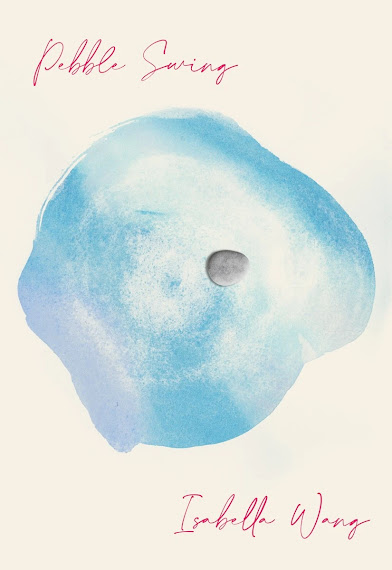1.
for Phyllis
where
are we now hold our loved poets as
seas as oceans close
this
imperfect sestina choreographs
the perfect
cinematography
of six-beat repetitions musics of
this life
our
hearts slow motion not repetition but
a moving
forward
ephemeral improv eyes pouring over
the stone in this heart you hear
the sound
of
a moving toward her illuminations that ephemeral
thing
Fred’s
music at the heart of thinking
Steve
says happens the moment a poem announces
itself
as ready to be written is lost now perhaps
lost
is readiness of the mind ghost to unhaunt the living’s
unhomed
de-visioned profiles of movement
bodies
/ parentheses / being to cohabit with the sound
at
the music of sounding
who
am i to you to others our common loving of mutual things
because
if you are lost how much of myself
that
i recognized in you needed our
perennial path
is
also lost Butler writes when we lose
something
we grieve we i ourselves
inseparable the removal
of
selves a moving
perfect
vulnerability bodies are
submerged such sounds
become
the space they inhabit [—
Ahmed] think now
while
Phyllis was here think heart journalistic eye
slow
pulsing our collective i we recognized in her our perfect
island
congruent counterpart and friend compass point and means to a living
with
meaning inseparable the forces of
living
are
meant to be broken and assembled
composed moving
a
reassembled broken body without
her but surrounding
that
ephemeral thing [— Barad
recomposed ]
Phyllis
i say tell me what words you want to
say up close
for
the beating hearts missing you how to perfect
(if
i’m worthy to know in afterlives you sea)
a music imperfect
for
the homeostatic quivering Elee:
of course every grief is an anchor line
to
previous losses island
ferry rituals redefined not gone, Steve
the poet moving
in
the cities and homes and poetries of her sound
how
to feed her ravens red bitter berries of winter and still feed everything
else up close we love Phyllis thinks we can it seems
Phyllis music toward the movement of closure
fill us music 1 2 3 …. 7 movements
toward the closed beat of ephemeral things
~ Isabella Wang
2.
YOU ARE HERE west through islands and rain to islands
and more rain longing
though not giving in to the fantasy of
far-flungness Conrad’s line
about the outlying islands and
continents of the earth close
the portals of the imperium lest some forget their undiscovered
thinking
we
are always already here when we perennially arrive moving
a reassembled broken body forming its own heart
sounds music sounding
Remember those who imagined a direction
to the flow of history sounding?
here is our distress and
delusion I listen instead to
geological longings
mountains as hands raised upon arrival
of immigrant island atolls moving
into late cretaceous sedimentary
formations folded and gouged in glacial lines
now weathers of our own atmospheric
making river everywhere over everything
so I come to ephemeral islands heart mind music fires washed clean composing
Yet still wondering why is it so hard to dispel languages of
colonial foreclosings?
whatever I I am seeks to leap out of harbour’s deep
soundings
to give what I can to our common
love of mutual things
remember there was always
resistance fire after rain and longing
bass tones of belonging lifting our treble lives
life under harbours surface surfacing creatures creaturely deeply moving
Under this constant rain and mountains
that rivers are removing
the slow pulsing of our collective
i we may lose or are
currently losing
but empire Said said involves all cultures in each other’s
living
I wonder what differences are erased in
storms raging over linguistic sounds?
everything is rooted in the earth even the sea has roots and belongings
even here we must think
habitation as we are washed
towards the sea thinking
I say this even if we are only
poets and don’t know anything
say this to other poets who know they
don’t know but are yet moved to
thinking
out along their time-bent paths leaning and longing
the whole culture leaning from a tower in time
a simultaneous we we compose
on islands edges
listening to the rain and waterfalls and other water sounds
perfect vulnerability tenderness of
earth’s variable orbit and the poem’s
leaning line
You are in this with me too climbing into curvature along the living
line
words thread through rain from island
to island to me poets are everything
composing we as vertigo
vocalizing send Columbus back to the
shot stars resounding
send Columbia back too let everything but the oldest names be
removed
yes we made all that is all melt
into an imperium of indifference and closing
so then recompose differences erased ecotones homeostatic quivering and longing
Are you still here? repeating lines of a symphony of snapped strings mountains afire
and seas moving
I Arnaut Daniel still grieving thinking between imagination and study trying
to keep you close
Empire follows art Blake’s voice resounding so lose it in the ark of the dark
in our endless longing
~ Stephen Collis
Authors’ Note: Marking PW's 95th birthday. While she left us in 2021, Webb's work and legacy continues to be generative. 'There ARE the poem,' and we continue to read and respond.
Isabella Wang is the author of the chapbook, On Forgetting a Language, and her full-length debut, Pebble Swing (Nightwood Editions, 2021). Among other recognitions, she has been shortlisted for Arc’s Poem of the Year Contest, The Malahat Review’s Far Horizons Contest and Long Poem Contest, and was the youngest writer to be shortlisted twice for The New Quarterly’s Edna Staebler Essay Contest. Her poetry and prose have appeared in over thirty literary journals and three anthologies. Completing a double-major in English and World Literature at SFU, she is a youth mentor with Vancouver Poetry House and an Editor at Room magazine.
Stephen Collis is the author of a dozen books of poetry and prose, including The Commons (2008), the BC Book Prize winning On the Material (2010), Once in Blockadia (2016), and Almost Islands: Phyllis Webb and the Pursuit of the Unwritten (2018)—all published by Talonbooks. A History of the Theories of Rain (2021) was a finalist for the Governor General’s Award for poetry, and in 2019, Collis was the recipient of the Writers’ Trust of Canada Latner Poetry Prize. He lives near Vancouver, on unceded Coast Salish Territory, and teaches poetry and poetics at Simon Fraser University.






